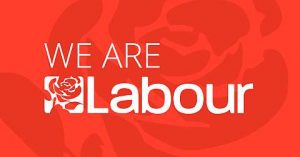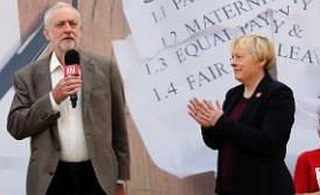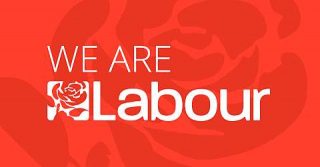Labour Leader Jeremy Corbyn faces the biggest challenge to his leadership now that former cabinet minister Angela Eagle has sworn to defeat him, because she believes that the Labour Party has lost its control as a party of opposition in Parliament.
Jeremy Corbyn’s election as Labour Leader was a surprise victory. The election of Labour Leader was largely controlled by big electoral blocs until the first attempt at opening up the ballot to ordinary members in 2007. When Tony Blair resigned nobody stood against Gordon Brown and so the only ballot ordinary members got to vote on was for the Deputy Leadership, won by Harriet Harman. The left-leaning candidate for deputy John Cruddas received 19.39% of the vote compared to Harriet Harman’s large second preference allocation.
The first real contest where ordinary members participated came in the election of Ed Miliband in 2010. This was a neck and neck race between the two Miliband brothers, Ed and David. David representing a seamless continuation of New Labour, Ed seen as a reformer who could break the link with the Blair, Iraq, PFI and the Bank Bailouts. As well as Labour Party members 247,000 members of Labour-affiliated Trade Unions and Socialist Societies voted in the election (About 9% of the total number of voters). The Left’s candidate Dianne Abbot was eliminated in the first round of voting with 7.42% of the vote.
Ed Miliband secured the vote, narrowly beating his brother. It was widely reported that Ed Miliband’s victory could only have happened because of the support of the Largest unions (Unite and GMB). Unite, even sending out a letter to members encouraging a vote for Ed Miliband.
The Tories played on union participation in the leadership election for all it was worth and despite the historic, inseparable link between the Unions and The Labour party, as can be seen in this exchange in July 2013 during Prime Minister’s Questions.
Miliband was seemingly embarrassed by Labour’s continued links to the unions (perhaps like a teenager embarrassed by a parents antics when witnessed by their friends, who knows?) and Pressed ahead with reforms (as reported in this BBC article from February 2014). The reforms disenfranchised 500,000 union members who were previously issued ballot papers for the last two leadership elections. Not all of those 500,000 union members were Labour supporters and they could have voted any way they wanted to if they wanted to unduly influence the result of an internal Labour election. To the best of my knowledge, that allegation has never been made and the decision of the reform was simply to distance Labour from the unions. Labour was created by union members to have a voice in parliament, what on earth could be more sincere and natural than that?
What the election reforms did was two things:-
- Create an opt-in system in the unions were supporters had to register their support within their union to get the chance to participate in Labour party democracy.
- Create a new class of supporters who gave £3 a year and could vote in leadership elections.
The £3 supporters have raised some alarm in some quarters. The facts are:-
- 105,598 £3 supporters voted in the 2015 leadership election
- 88,449 £3 supporters voted for Jeremy Corbyn
- The £3 supporters represented 35.18% of the total voters who elected Jeremy Corbyn (251,417)
- If we exclude all of the £3 supporters from the votes cast, the result is :-
- Jeremy Corbyn 162,968 (51.4%) ELECTED
- Andy Burnham 74,302 (23.4%) ELIMINATED
- Yvette Cooper 63,513 (20%) ELIMINATED
- Liz Kendall 16,283 (5.1%) ELIMINATED
With the £3 supporters included, Jeremy Corbyn polled 59.5% of the total votes in the first round of voting.
Anger at austerity or is it Entryism?
Entryism into the Labour Party has certainly happened at times within the Party’s history, most notably with Gerry Healy’s Socialist Outlook/’The Club’ and The Militant newspaper. For Trotsky in the early days of entryism, groups were small due to a combination of design and the need to exist within an organisation like the Labour Party. For Trotskyists, the goal was one of influence. The great strength of Healy’s group and The Militant was in the Labour Party youth wing. (Young Socialists and later Labour Party Young Socialists). The success was with working class youth demoralised by the decay of Britain’s industrial towns and cities in the 1970s and 1980s. In fact, Militant, were key to the organisation against the Tory Poll Tax of 1989/90.
Kinnock shifted the Labour Party to the right and members or readers of Trotskyist newspapers were either expelled or left the Party. Leninisation of a bureaucratic, reformist social democratic organisation isn’t a possibility when one has to be pure to the ideals of Marxism. Anything but is surely capitulation to those who make deals in the short term interest of the working class.
The left’s hope of some kind of return to ‘The Spirit of ’45’ (no, not Culloden, Atlee’s 1945 election victory which paved the way for the NHS and nationalisation.), was dealt a terrible blow with the death of Labour Leader John Smith in 1994.
New Labour under Tony Blair changed a lot of thinking within the Labour Party. I doubt that by 1994 most activist were committed to nationalisation apart from the essential utilities. New Labour threw out the whole idea and even invented new ways to Privatise things. PFI was a hideous deformed way of government bodies and councils borrowing money by handing over assets and then paying other companies to run previously government owned institutions with contracts extending upwards of 40 years.
Blair went globetrotting and then started invading other countries. A lot of people got angry, but not angry enough to call a halt to it all and then in the middle of all the PFI borrowing the banks got greedy and started trading in worthless bundles of mortgages which nobody could put a value on but earned lots of people money as they re-bundled them and passed them across to other banks. Then the bubble burst and nobody had any money to lend to each other and people started talking about Austerity.
Austerity. A Labour government out of office and a coalition government of disinterested millionaires proclaiming cuts and closures to Britain’s infrastructure. The people got angry and took to the streets.
Grass roots movements sprung up like the Peoples Assembly Against Austerity and Ken Loach’s dream on a new Socialist political party that would reinvigorate British politic like Atlee’s government of 1945. He produced a film called, ‘Spirit of ’45’ and soon launched his Left Unity party. The left isn’t huge in the UK and despite the opportunity for groups to work together they were doomed.
The 2015 election failed to see the Labour victory the country deserved. Unprincipled campaigning in Scotland by that wolf in sheep’s clothing, the Scottish National Party made labour seem out of touch with working class voters. Even with Miliband/Balls’ austerity-lite, a spaced out financial plan to cut borrowing and reduce the deficit, nothing captured the imagination like the idea of Miliband and the SNP’s Nicola Sturgeon sharing power. Labour lost almost every seat it had held in Scotland for generations and David Cameron’s Tory party gained power by just 12 seats.
Ed Miliband resigned, he was unloved by the right of the Labour party and the media. Certainly, his style was uncomfortable at times, I think he lacked confidence and it gave him a hint of lacking sincerity or commitment. The Labour Party was more confrontational under his leadership than it had been for years and it is his legacy that left felt confident to confront some of the issues in the Labour Party that had driven it from the working class.
Jeremy Corbyn appeared on the ballot to give the left a chance to participate. By all accounts, there was a last minute scramble to get nominations from MPs. Whether or not that is an apocryphal tale to lend to the mystique of the Corbyn or not I don’t know, but it was a surprise. The three largest left-wing groups outside of the Labour Party, The Communist Party of Britain (Peoples Printing Press/Morning Star), The Socialist Party (the old Militant newspaper/Peter Taafe) and Socialist Workers Party were vocal in their support and encouraged their readers and activists to register as Labour £3 supporters. As I pointed out before, I find it very difficult to imagine how these groups alone were able to get 89,000 people to sign up. Organising mass demonstrations of this size involves getting the participation of lots of groups of people. I doubt it could just be there work alone.
I honestly believe that outside of the left-wing groups, there is a sizeable group who want to see a Labour left leadership. Not just a movement, but a Labour left leadership that can take the reins of government and reverse some of the policies that have hit working class communities. Labour in government under Blair wasn’t close enough to the working class communities that saw some people’s living standards increase and others get worse. Aspiration isn’t about creating a system where only the most resourceful have opportunities but offer a helping hand to pick families out of poverty. These shouldn’t be left wing fantasies but commitments from Labour Party politicians who believe in making the UK a fair society, where we create wealth and invest that in the future not in disastrous PFI type schemes of old.
Jeremy Corbyn suffers some of the faults of those on the left who always have to pick a side. I don’t want people to sit on the fence either but real integrity means that everybody has a right to have an audience and an opportunity to put forward their side. For the Labour Party, if he truly wants to lead us to a victory, he needs to listen to all the voices within the party, heal some of the divisions that have lingered for years and start talking about an economic plan that other countries are envious of.
For Angela Eagle and for those that see this as some sort of Menshevik/Bolshevik power struggle, this is the Labour Party, it is much more flexible than that and it will exist in much the same shape it has done for the last century. At its core are those people who don’t see poles apart but similarities and a desire for equality.


